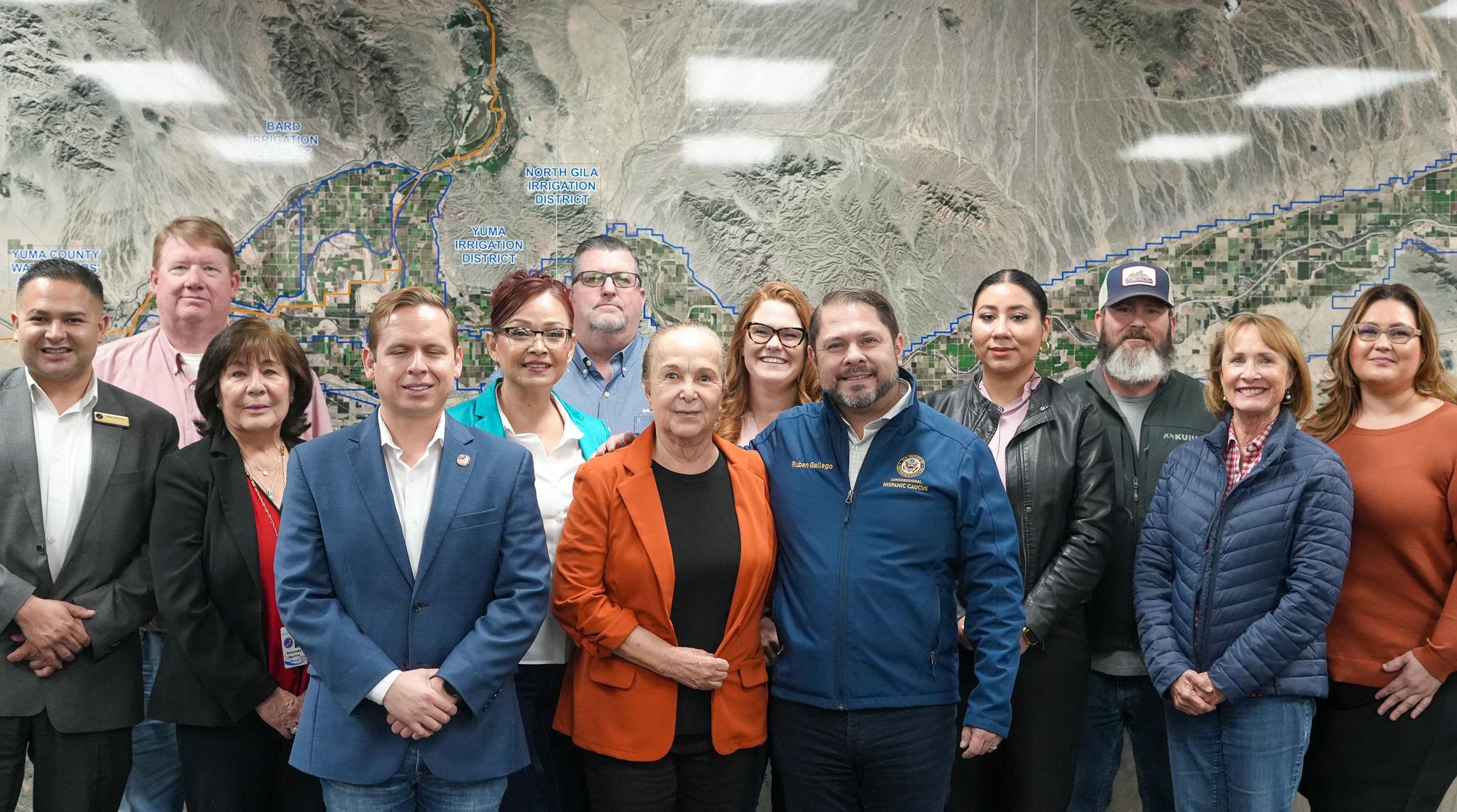Gallego Discusses Impact of Lukeville Closing & Greater Border Concerns with Leaders in Yuma
YUMA, AZ – Rep. Ruben Gallego (AZ-03) today met with local officials, farmers, and business owners to discuss the impact the closing of the Lukeville Port of Entry has on their businesses and Arizona’s economy.
Gathering at the Yuma Center of Excellence for Desert Agriculture, Rep. Gallego updated the group on his discussions with Customs and Border Protection (CBP) regarding the status of the Lukeville Port of Entry, the impact of its closure on Arizona’s other top Ports of Entry, and his ongoing efforts to protect Arizona’s border communities and get them the resources they need to deal with the increase in arrivals at the border.
“The unilateral decision by CBP to close Lukeville was unacceptable, and as I heard from those in Yuma today, the closure is dramatically affecting their businesses and Arizona’s economy,” said Rep. Gallego. “As I reiterated to the group, Arizona’s border crisis is a national problem that requires a national solution—our local officials and businesses shouldn’t be forced into a position where they have to navigate the crisis alone. I’m pushing my colleagues in Congress and the administration to get Arizonans the support they deserve.”

According to the U.S. Department of Transportation, 3,140 people in vehicles and 184 pedestrians entered the U.S. daily through the Lukeville Port of Entry in October. As the only viable route to Rocky Point, Mexico, for Arizona travelers, the closure of the Port of Entry negatively affects Arizona tourism and its economy.
And with the closure of the Lukeville Port of Entry, Arizona’s other Ports of Entry, like Arizona’s second busiest Port of Entry, San Luis, are seeing increased traffic. Because Yuma supplies 90 percent of the country’s winter lettuce, this increase in traffic is impacting the leafy greens harvest, which is in full swing.
Last week, when CBP announced the closure of Lukeville, Rep. Gallego reiterated his call to dramatically increase resources to manage the migrant arrivals, keep Arizonans safe, and protect Arizona’s economy.
Rep. Gallego also sent a letter to the Speaker of the House, Mike Johnson, imploring the Speaker to ensure that any supplemental funding package that comes before the House addresses the needs of Arizona’s border communities.
Background on Rep. Gallego’s Efforts to Support Arizona’s Border Communities:
Prior to the end of Title 42 in May and after communicating with Arizona border leaders, Gallego sent four letters to Biden Administration officials and Congress requesting specific resources these communities need to reduce the burden on them and their residents.
In June, he sent an initial letter to the Federal Emergency Management Agency (FEMA) arguing that border states like Arizona need more funding to address border crossings and provide services. He called the FEMA funding model “misguided.”
After a lackluster response from FEMA, he sent a second letter to Secretary of Homeland Secretary Alejandro Mayorkas directly, expressing his disagreement with the funding model.
Gallego also sent a letter to FEMA urging the Agency to fix a new documentation requirement that strains border communities and non-profits in Arizona, putting their funding at risk.
Following these letters, as well as a one-on-one call with Sec. Mayorkas, Rep. Gallego announced in September that he had secured over $2 million in emergency funding from the DHS to support Arizona’s border communities as they address an increase in migrant crossings.
In November, Rep. Gallego joined Rep. Michael McCaul (TX-10) in sending a bipartisan letter to House Appropriations Committee leadership requesting that any FY 2024 supplemental appropriations include funding for critical programs to aid first responders in communities impacted by immigration.
Most recently, after close coordination with Arizona’s non-profits, border community leaders, and law enforcement officials, Rep. Gallego rolled out his plan to institute sweeping reforms to address the problems plaguing FEMA’s failed Shelter and Services Program (SSP) that has shortchanged Arizona’s border communities on the front line of the border crisis.
